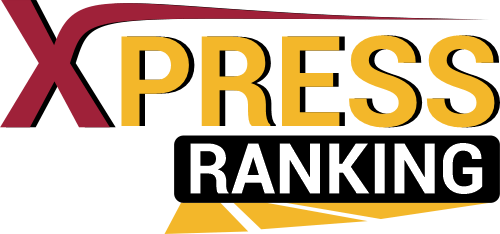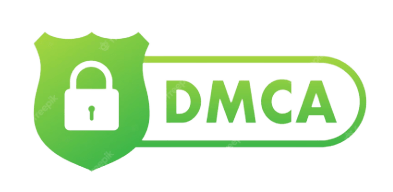Visibility is directly related to your ranking, making your website shift to the top of the search engine result page(SERP). But for quick results, if you focus on short-term paybacks by choosing quantity over quality, then search engines may flag you as spam. Google has stringent guidelines when it comes to link building and doesn’t support link farming. The same is an old-fashioned, black-hat SEO tactic responsible for dropping search engine rankings.
In SEO, backlinks are the two sides of the same coin, where inbound links are good, but there are some links you need to avoid at the time of link creation. The same are bad incoming links which are much responsible for damaging your website and SERP rankings as well.
So why is link farming bad for SEO, and how does it impact your website? We will discuss everything that you should need to know before making backlinks for your website. The blog discusses everything about link farming, so let’s start with the blog; keep on reading!
A Brief Overview Of What is Link-Farming?
Links are essential to improving a website’s domain authority; at the same time, Google enjoys organic backlinks, which help websites rank in the top ten of Search Engine Result Pages (SERP). However, link farming is a different situation, as it is a collection of websites or web pages made solely to host hyperlinks to intentionally boost the search engine rankings of other websites.
Why is Google Against Link Farming?

Google is a popular search engine that holds a good majority of website data. When users hit a query, they will get relevant results according to their searches. Search engines have always been against such black-hat SEO practices, which provide no value to the user and are made of low-quality and spammy links.
Earlier websites were considered trustworthy based on their overall value and popularity. For example, if a website had the majority of backlinks, then that site was considered valuable, though few alternatives show the difference between real and fake backlinks.
With the launch of Google’s new algorithm, it’s becoming much easier to identify whether your website has link farms. At the same time, search engines generally eliminate such practices.
Why Does Link Farm have a High Domain Authority(DA)?
Generally, when you create backlinks for your website, you may be attracted to a website that has high domain authority(DA). Don’t let SEO metrics trick you into thinking a website is helpful and worth targeting in your link-building outreach campaigns. On the other hand, websites with lower DA also have an authoritative score and will benefit your website.
Link Farming has higher DA because the same manipulates search engine algorithms by creating an extensive network of interconnected sites that link back to each other.
Such numerous backlinks artificially boost the authority of the linked websites, even if the content is low-quality or irrelevant. While this can temporarily increase DA, search engines like Google actively penalize link farms because they violate SEO best practices.
There are comprehensive alternatives to building link farms on high authority domains; in such cases, the website could be:
- Made on an expired domain with an existing high domain authority(DA).
- It is a once valuable, authoritative website that has since been neglected.
- Or, it may also be a private blog network (PBN) that artificially inflates its domain metrics through manipulated link-building.
How to Identify Link Farm on Your Website?
We have discussed much about link farming, its consequences, why search engines push it away, and how it has higher DA until now. Now, it’s time to understand how to identify that your website has a link farm; let’s explore how you can identify and avoid these websites.
Here are some warning signs you may don’t skip:
Website with a Basic or Tempted Design
Link farm owners tend not to spend a lot of money or time on the site’s design. Instead, they prefer a basic page template. In contrast, high-quality websites are much different from the latter, as the former has a customized design that enhances the overall user experience.
Poor Quality & Irrelevant Content
Websites with a link farm often have poor and irrelevant content, completely different from high-quality websites. The prime focus of such websites is to extend their reach with guest posting. This means that the people creating the content hardly put their efforts into researching and are far from delivering quality content to readers.
Using Spammy Domain Names
Once in a while, you may come across websites with spammy domains or strange names with irrelevant keywords. It is a part of their strategy to use such websites for link farming, so next time when you come across such a site, it will be a link farming website.
If a link farm attacks your website and you’re unable to remove it, connect with Xpress Ranking, an expert with years of renowned experience who can help restore and grow your site.
Websites with Full of External Links
Link farms typically host numerous outbound links to manipulate search engine rankings. To avoid link farming, ensure that your website maintains a reasonable number of external links. Tools like Ahrefs can help you identify how many links a website has and monitor its link profile.
Why Should You Avoid Link Farming?
Low-Quality Links
Low-quality links are examples of irrelevant or spammy websites and can severely harm your site’s credibility. Such links often lack context, value, and authority, leading search engines to devalue your site. On the other hand, getting links from trusted and reputable sources really makes sense for maintaining a solid online presence.
Penalties Associated with Farming Links
Link farming, a black-hat SEO tactic, incorporates artificially inflating a website’s link profile by generating excessive backlinks from low-quality sites. Search engines like Google penalize such practices, often resulting in a significant drop in rankings, traffic, and visibility. These penalties can be difficult to recover from, making it crucial to focus on organic, high-quality link-building strategies.
Tarnished Website Reputation
Websites performing link farming or associating with poor-quality websites can tarnish your website’s reputation. When search engines detect manipulative tactics, they penalize your site, diminishing its authority and trustworthiness. As a result, this, in turn, affects your site’s ranking and also leads to reduced user trust.
Compromised Search Quality
Adding such black-hat SEO practices to your website means compromising the quality of search engine results by promoting sites that rely on manipulative backlink strategies. This will drive your audiences away from your website and undermine the overall user experience, as search engines may rank sites with poor-quality links over more deserving ones.
Elimination from Directories
Websites involved in link farming are often removed from reputable online directories and search engine indexes. These platforms prioritize high-quality, authoritative content, and any association with low-quality link schemes can lead to de-indexing. Once a site is removed, it becomes easier to regain its standing, severely impacting its online visibility and credibility.
Poor Traffic Quality
Link farming not only manipulates search rankings but also attracts low-quality traffic to your site. Visitors from link farms are often irrelevant to your niche or uninterested in your content, leading to high bounce rates and low conversion rates. This ultimately undermines the effectiveness of your online marketing efforts and diminishes the value of your website.
Not a Long-Term Solution for Your Website
Link farming is a shortcut to boost your website’s ranking, but it’s not a long-term solution. There is always an updated Google algorithm that makes search engines detect link farming and penalize websites that engage in it.



